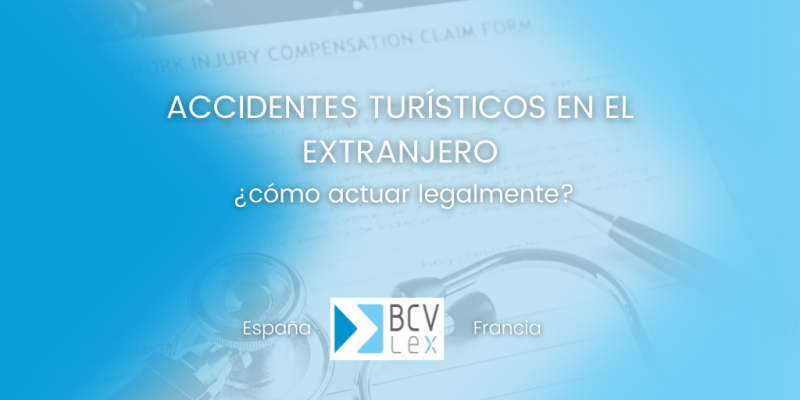
Insurance claim guide: Have you had an Sky Accident?
What to do if we suffer an accident at a ski resort?
It is nothing new that snow sports fans are prone to accidents at ski resorts. All these ski resorts are huge open-air sports centers that must ensure that the service is provided correctly and with as little risk as possible, whether it is cross-country skiing, alpine skiing, snowboarding, and, in general, any type of snow sport.
Although the normal thing is that we talk about small falls or consequences that, although painful, are temporary, we are also going to find painful or permanent injuries that require long-term or lifelong care. It is something that unfortunately sometimes happens and the reason many fans take out sports insurance for ourselves and our families.
Who pays the hospital expenses? What if I’m to blame?
As expert lawyers in claims for skiing and other snow sports accidents, we realize that many fans do not know that they can claim not only for the injuries suffered but also for flights, travel expenses, etc.
In this sense, accidents can come both from the state of the slope and from deficiencies in the materials, facilities or bad advice from the ski instructor or simply from other skiers. In these cases, there is insurance to claim and that we pay when accessing the facilities in the case of volunteer insurance or that covers other situations in the case of volunteers.
Many stations have wanted to cover their backs, legally speaking, indicating with signage signs about the danger of certain areas or tracks of the station.
In recent years, it has been possible to verify the proliferation of soft protections on poles, snow cannons, and other constructions that are on the slopes. In addition, soft nets have replaced metal or wooden fences and signs warning “danger” or “experienced skiers only” that must appear in all danger zones.
Compensation for a ski or snowboard accident
How expert lawyers in ski accident claims can claim if you are in some assumptions:
- Insurance claim for falls on the ski lift or ski pass.
The management company of the slopes and their insurance must take care of the injuries.
- Insurance claim for falls or off-piste accidents.
These falls, in principle, are not covered by the slopes, although in the case of being accompanied by a ski instructor, this may be responsible.
- Insurance claim for falls caused by another fan or skier.
In these cases, the company that owns the slope is likely to blame the skier and does not want to take responsibility. However, it is likely that his position is not correct, since it is subsidiary responsible for what happens.
When these protection measures have not been adopted, the courts have mostly understood that there has been negligence on the part of the ski resort. In any case, it must be taken into account that the victim may also be at fault, which in some cases may be exclusive if he or she recklessly skied in a beginner area or at a crossroads.
- Insurance claim for falls due to poor signaling of track conditions.
- Insurance claim for falls due to poor monitor indications.
- Insurance claim for cases in which the level is more complex than the fan’s knowledge, or bad advice is received.
- Insurance claim for falls or accidents due to poor quality equipment.
- Insurance claim for collisions with buildings and signal poles.
- Insurance claim for accidents caused by the use of ski lifts.
- Insurance claim for falls of skiers alone.
- Insurance claim for falls or any accident of all kinds within the facilities, even if we are not doing sports. Like slipping on ice.
Ski or Snowboard Accident Compensation
What expenses are claimable to insurers for ski accidents?
You have the right to ski or snowboard in a place where reasonable measures have been taken to guarantee your safety, therefore, the service providers are responsible for any accidental or negligent event. That is, they are obliged to economically repair the damage. Compensatory concepts are all those related to:
- Hospitalization expenses (If we are abroad).
- Medical/surgical assistance.
- Pharmaceutical expenses.
- Prostheses and osteosynthesis material
- Compensation for anatomical or functional losses.
- Transportation expenses to the medical center either by ambulance, helicopter or any other.
- Season ticket or ski pass expenses.
- Flight expenses or loss of luggage, either due to a delay in the departure or due to a change in schedule as a result of the accident.
- Compensation for physical or aesthetic consequences.
- Compensation for sick days.
- Interest for any refusal of the company to pay or compensate.
- Death.
Deadline to claim ski compensation
You must know that there is a deadline to claim for your ski accident and that after that time you will lose your right to claim. Against, we are going to find a disclaimer from the ski resorts themselves with clauses of the type:
- The user who accesses a ski resort assumes that it is a sport whose practice entails risks, which may be increased depending on various factors, such as weather conditions, snow, technical level, and the user’s degree of fatigue. , the behavior of other users, the material used, etc.
- The station does not have the means to control the technical level of the users, so they will be solely responsible for the consequences arising from the choice of an inappropriate descent for their level.
We can establish that, whether agreed in writing or not, the limitation would be valid for damages caused by the exclusive fault of the victim. While the provider would respond in any case due to intent or negligence, or if an accident due to fault if he did not act correctly informing the user. In any case, when submitting claims, it is the organizer of the sporting event who is responsible for proving that it complied with all the conditions.
Tips on how to proceed in the event of a ski accident
- Look for witnesses or, failing that, request help from the local police to raise the report.
- Try to take some pictures and forward them to record the date.
- Check if the ticket has insurance.
- Check if you have sports accident insurance.
- Check if it appears in the home insurance policy.
- Keep the vouchers, receipts or invoices for both the preparation of the ski jacket, and all the inconveniences or expenses suffered by the accident.
- Keep all medical documents and go to the doctor whenever you have discomfort.
- In the case of professional or federated athletes, consult your insurance.
- Take into account if the accident occurred within an organized trip or school outing. These may have compatible insurance.
Important note about compensation for a ski or snowboard accident
European insurance regulations facilitate claims between insurance companies between member countries of the European Union, so if you have suffered a ski accident in another country, contact our law firm. It is possible that we can do the management in its entirety or advance the most important part from Spain.
Don’t wait, contact our ski and mountain accident attorneys today. We will review your case at no cost to you and indicate the best way forward by taking care of the entire process. We work for all stations in Spain.



